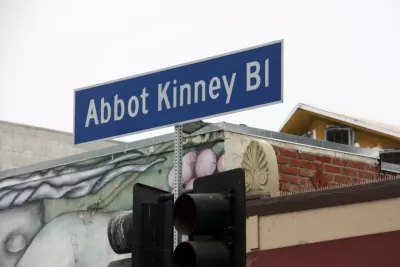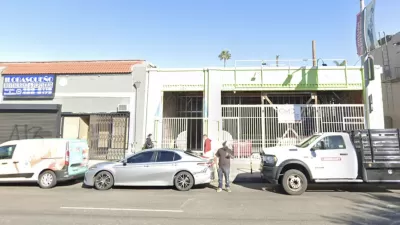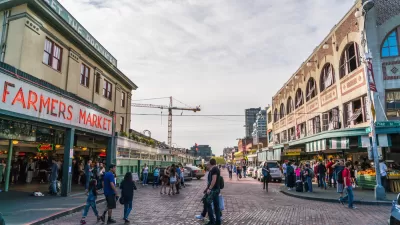Is a gentrified Venice Beach still Venice Beach? With median home prices topping $1.4 million, the area's eclectic characters can't afford to stay. Investors and the tech industry say the change is only natural.

Venice Beach is on the path to becoming something very different. Some are now calling the area Silicon Beach. "As skyrocketing real estate prices push longtime residents out of this oceanside district of Los Angeles, corporate chains are replacing funky shops, and tech geeks are emerging as a dominant part of the scene."
Google and Snapchat stand out among a throng of start-ups and plentiful investment by moneyed interests. Median home prices are up from $832,000 to $1.4 million in the past five years alone. Abbot Kinney Boulevard, formerly a space for bohemian shops and eateries, has gone full yuppie. "In a stunner last month, a piece of commercial property on the boulevard sold for $44 million to a New York partnership [...] Jaws had also dropped when the same property sold for $20 million two years ago."
Venice's breakneck gentrification is pushing out the artists and musicians who defined the area for so many years. Some commentators call it natural, prime beachfront property finally coming into the value it should have had all along. Venice is now the top Airbnb spot in L.A.
If that's the case, the area's hippies and avant-garde artists will need to find somewhere else to call home. Or as one resident put it, "A lot of other people, they just disappear, dude."
FULL STORY: How Snapchat tech titans are harshing the mellow in Venice Beach

Alabama: Trump Terminates Settlements for Black Communities Harmed By Raw Sewage
Trump deemed the landmark civil rights agreement “illegal DEI and environmental justice policy.”

Planetizen Federal Action Tracker
A weekly monitor of how Trump’s orders and actions are impacting planners and planning in America.

The 120 Year Old Tiny Home Villages That Sheltered San Francisco’s Earthquake Refugees
More than a century ago, San Francisco mobilized to house thousands of residents displaced by the 1906 earthquake. Could their strategy offer a model for the present?

In Both Crashes and Crime, Public Transportation is Far Safer than Driving
Contrary to popular assumptions, public transportation has far lower crash and crime rates than automobile travel. For safer communities, improve and encourage transit travel.

Report: Zoning Reforms Should Complement Nashville’s Ambitious Transit Plan
Without reform, restrictive zoning codes will limit the impact of the city’s planned transit expansion and could exclude some of the residents who depend on transit the most.

Judge Orders Release of Frozen IRA, IIJA Funding
The decision is a victory for environmental groups who charged that freezing funds for critical infrastructure and disaster response programs caused “real and irreparable harm” to communities.
Urban Design for Planners 1: Software Tools
This six-course series explores essential urban design concepts using open source software and equips planners with the tools they need to participate fully in the urban design process.
Planning for Universal Design
Learn the tools for implementing Universal Design in planning regulations.
Clanton & Associates, Inc.
Jessamine County Fiscal Court
Institute for Housing and Urban Development Studies (IHS)
City of Grandview
Harvard GSD Executive Education
Toledo-Lucas County Plan Commissions
Salt Lake City
NYU Wagner Graduate School of Public Service





























